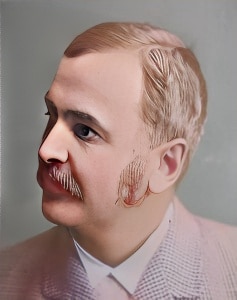 Conrad Veidt, born on January 22, 1893, in Potsdam, Germany, was a highly acclaimed German actor known for his versatile and powerful performances in both silent and sound films.
Conrad Veidt, born on January 22, 1893, in Potsdam, Germany, was a highly acclaimed German actor known for his versatile and powerful performances in both silent and sound films.
He left an indelible mark on the history of cinema and remains celebrated for his significant contributions to the art of acting.
Veidt’s acting career began in the early 1910s when he joined Max Reinhardt’s theater company. This marked the beginning of his journey in the world of theater and later in film. Veidt’s distinctive presence and remarkable talent quickly set him apart from his contemporaries.
One of the pivotal moments in Conrad Veidt’s career came when he collaborated with director Robert Wiene on the iconic 1920 silent film “The Cabinet of Dr. Caligari.” In this groundbreaking work of German expressionist cinema, Veidt portrayed Cesare, the somnambulist, whose character is central to the film’s enigmatic and eerie narrative. His performance was haunting and unforgettable, contributing significantly to the film’s success.
“The Cabinet of Dr. Caligari” is celebrated for its visually striking and highly stylized set design, characterized by distorted, angular, and nightmarish architecture. Veidt’s portrayal of Cesare added depth and intensity to the film’s dreamlike atmosphere. His ability to convey a wide range of emotions primarily through physical acting and expressions endeared him to audiences and established him as a master of his craft.
Conrad Veidt’s collaboration with groundbreaking directors extended beyond Wiene. He also worked with director Paul Leni in “Waxworks” (1924), a silent film in which he played a series of roles in a fantastical and visually stunning narrative. The film showcased his versatility and ability to adapt to various characters and genres.
In 1928, with the advent of sound films, Veidt successfully made the transition, unlike some of his silent film peers who struggled to adapt. His rich and distinctive voice, coupled with his commanding screen presence, allowed him to continue his successful career in the new era of cinema.
One of the most notable sound films in Conrad Veidt’s career was “The Man Who Laughs” (1928), directed by Paul Leni. In this film, he portrayed Gwynplaine, a disfigured man with a perpetual grin. His performance was powerful and poignant, capturing the emotional depth of the character.
Veidt’s ability to excel in a wide range of roles, from romantic leads to complex and tortured characters, made him a sought-after actor. His performances in films such as “Jew Suss” (1940) and “Casablanca” (1942) further solidified his reputation as a versatile and captivating actor.
In “Casablanca,” Veidt played the role of Major Heinrich Strasser, a Nazi antagonist opposite Humphrey Bogart and Ingrid Bergman. His portrayal added depth to the film’s conflict and intrigue, and his commanding presence made him a memorable antagonist in the classic film.
Conrad Veidt’s impact on the world of cinema extended well beyond his acting roles. He was known for his principled stand against the Nazi regime, and he used his influence to assist Jewish actors and artists who were persecuted during the Holocaust. His activism and advocacy for the persecuted remain an integral part of his legacy.
In conclusion, Conrad Veidt was a remarkable actor whose contributions to the world of cinema continue to be celebrated. His iconic roles in silent classics like “The Cabinet of Dr. Caligari” and his ability to transition successfully to sound films made him a legendary figure in the history of film. Veidt’s talent, versatility, and principled stand against oppression make him a significant and enduring presence in the world of cinema. His performances continue to captivate audiences and inspire generations of actors and filmmakers.
Loading live eBay listings...




